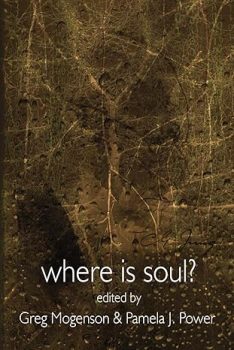Giving the lie to psychology’s having long ago dropped the word “soul” from its vocabulary, the authors of these essays tenaciously explore the theme of “psychology in modernity” by asking with respect to our times, “Where is soul?”
Having come together for a symposium in Berlin in the summer of 2024, Jungian analysts and scholars from Canada, Germany, Switzerland, Japan, England, Spain and the United States presented papers on such topics as interiority and accomplished modernity, Jung’s thematization of the spiritual problem of modern man, technology as antichrist, the logic of love in relation to the Holocaust, human dignity, the psychology of simulation, the search for the arcane substance, reflexivity and the edge of the psychological, Mexican shamanic experience as the other of modernity’s linguistic turn, and the soulful significance in modern Japan of love suicide, Minamata disease, and the creation of outer space as this pertains to “the birth of man.” Introduced by its editors, Mogenson and Power, and with a keynote address by Wolfgang Giegerich, this remarkable collection of essays—each of which carries forward Jung’s focus upon the objective psyche—will be of interest for the insights it offers into a wide range of contemporary cultural topics.
CONTENTS
Opening Remarks: Where is Soul? Psychology in Modernity (Greg Mogenson)
1. Interiority and Accomplished Modernity (Wolfgang Giegerich)
2. Where is Human Dignity in Modernity? (Peter White)
. The Sky Ladder, Heinrich Schütz, and Searching for the Arcane Substance (Pamela J. Power)
4. Modern Technology as Antichrist (John Hoedl)
5. Consciousness, Entropy, and the Edge of the Psychological (Philip Kime) 6. Where is the Love (with a Capital L)? (Carmen Kobor)
7. The Creation of Outer Space and the Birth of Man in Japan (Kenji Kaneshiro)
8. The State of Psychology in Japan: The Historical Transition of the Soul as Seen in Shinju (Love Suicide) (Tsuyoshi Inomata)
9. Where is Soul? A “Spiritual Problem” for Jung’s Time and our Own? (Paul Bishop)
10. Aurum Vulgi: A Reflection on Simulation in Psychology and Its Philosophical and Historical Backdrop (Michael Whan)
11. A Journey to Infinity: Bridging Consciousness across Traditions (Josep M. Moreno Alavedra)
12. Minamata Disease as a Negation of Japan as an Anima World: A Consideration from the Life of Dr. Hajime Hosokawa (Jun Kitayama)

